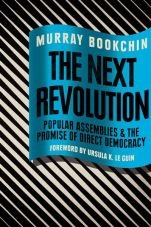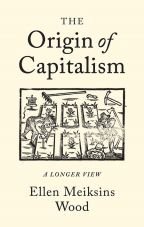Verso books
Margaret Thatcher branded the leaders of the 1984–85 miners' strike “the enemy within.” In this classic account, Seumas Milne reveals the astonishing lengths to which her government and its intelligence machine were prepared to go to destroy the power of Britain’s miners’ union.
Autor*innen: Seumas Milne
Autor*innen: Judith Levine; Erica R. Meiners
The Great Adaptation tells the story of how scientists, governments and corporations have tried to deal with the challenge that climate change poses to capitalism by promoting adaptation to its consequences, rather than combating its causes. Since the 1970s, neoliberal economists and ideologues have used climate change as an argument for creating more “flexibility” in society, for promoting more market-based solutions to environmental and social questions. This book unveils the political economy of this potent movement, showing how some powerful actors are thriving in the face of dangerous climate change and even making a profit out of it.
Autor*innen: Romain Felli
Responding to Alain Badiou’s ‘communist hypothesis’, the leading political philosophers of the Left convened in London in 2009 to take part in a landmark conference to discuss the perpetual, persistent notion that, in a truly emancipated society, all things should be owned in common. This volume brings together their discussions on the philosophical and political import of the communist idea, highlighting both its continuing significance and the need to reconfigure the concept within a world marked by havoc and crisis.
Autor*innen: Costas Douzinas; Slavoj Zizek (Editor)
This volume brings together papers from the subsequent 2011 New York conference organized by Verso and continues this critical discussion, highlighting the philosophical and political importance of the communist idea, in a world of financial and social turmoil.
Contributors include Alain Badiou, Etienne Balibar, Bruno Bosteels, Susan Buck-Morss, Jodi Dean, Adrian Johnston, François Nicolas, Frank Ruda, Emmanuel Terray and Slavoj Žižek.
Autor*innen: Slavoj Zizek (Editor)
Autor*innen: Carola Dietze
Autor*innen: Theodore W. Allen
With a foreword by the best-selling author of The Dispossessed, Ursula K. Le Guin, The Next Revolution brings together Bookchin’s essays on freedom and direct democracy for the first time, offering a bold political vision that can move us from protest to social transformation. A pioneering voice in the ecology and anarchist movements, he is the author of The Ecology of Freedom and Post-Scarcity Anarchism among many other books.
Autor*innen: Murray Bookchin
In The Origin of Capitalism, a now-classic work of history, Ellen Meiksins Wood offers readers a clear and accessible introduction to the theories and debates concerning the birth of capitalism, imperialism, and the modern nation state. Capitalism is not a natural and inevitable consequence of human nature, nor simply an extension of age-old practices of trade and commerce. Rather, it is a late and localized product of very specific historical conditions, which required great transformations in social relations and in the relationship between humans and nature.
Autor*innen: Ellen Meiksins Wood
In the uprisings of the Arab world, Alain Badiou discerns echoes of the European revolutions of 1848. In both cases, the object was to overthrow despotic regimes maintained by the great powers-regimes designed to impose the will of financial oligarchies.
Autor*innen: Alain Badiou
Autor*innen: Gavin Walker (Editor)
For a brief explosive period in the mid-1970s, the young and the unemployed of Italy’s cities joined the workers in an unexpectedly militant movement known simply as Autonomy (Autonomia). Its “politics of refusal” united its opponents behind draconian measures more severe than any seen since the war.
Autor*innen: Nanni Balestrini



























